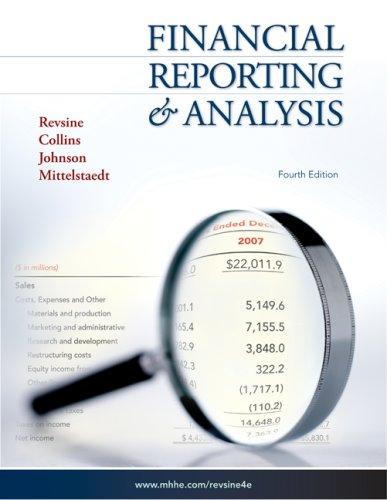In Switzerland, long a haven for big money, a backlash is developing against outsized executive compensation. The
Question:
Mr. Minder has been collecting signatures to call a national vote—as permitted under the Swiss constitution—to amend Swiss law to force more transparency and accountability on executive compensation. He says his goal is to create ways for shareholders to veto pay packages and create more “sensible” pay practices in Switzerland, a country where wealth has traditionally been welcomed, rather than frowned upon. Across Europe, growing disenchantment with high executive pay is increasingly a political issue. In France, the losing candidate for the presidency, Ségolène Royal, called on Airbus to withdraw its proposed 10,000 job cuts after it disclosed that
Noël Forgeard, former chief executive of Airbus and its parent, European Aeronautic Defence & Space Co., received €6.1 million ($8.2 million) in an exit pay package. The company said the package was provided for in his contract, but Ms. Royal called the payment a “scandal.”
In Germany, Finance Minister Peer Steinbrück has said Europe’s social model couldn’t be sustained if the wages of low earners fall as company profits rise.
Switzerland is set to introduce greater disclosure of executive compensation for companies listed on the Swiss exchange. Starting next year, companies must disclose the salaries of the highest paid member of the management board. Previously, Swiss companies released only the total salaries of the combined board and the individual salary of the highest paid member of the supervisory board, which is akin to a U.S. board of directors. . . .
Current law allows Swiss companies to disclose less detail on executive pay than U.S. companies. They aren’t required to disclose individual pay packages for chief executives and often don’t have to mention benefits such as personal loans or housing allowances. . . .
Mr. Minder says he pays himself “far less” than 100,000 Swiss francs, or about $81,000, a year and took on his (continued)
Required:
1. Do shareholders vote on the compensation packages paid to top executives of U.S. companies?
2. One of Minder’s proposals would ban the use of golden parachutes. How might this ban harm shareholders?
3. In the United States, the average big company CEO made $11.6 million in 2005, or 411 times the typical U.S. worker, according to the Institute for Policy Studies. That same year, average CEO compensation for companies with approximately $500 million in worldwide annual sales was $2.2 million in the United States, $1.4 million in Switzerland, and $1.2 million in France, the United Kingdom, and Germany. With these statistics as a backdrop, provide (a) three reasons in support of giving European shareholders the right to approve CEO pay packages and (b) three reasons why you are against doing so.
4. Should citizens have the right to approve CEO pay packages? Why or why not?
Fantastic news! We've Found the answer you've been seeking!
Step by Step Answer:
Related Book For 

Question Posted:





